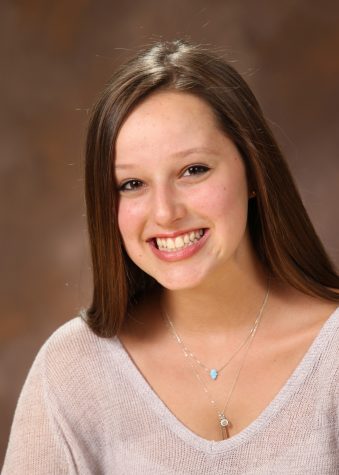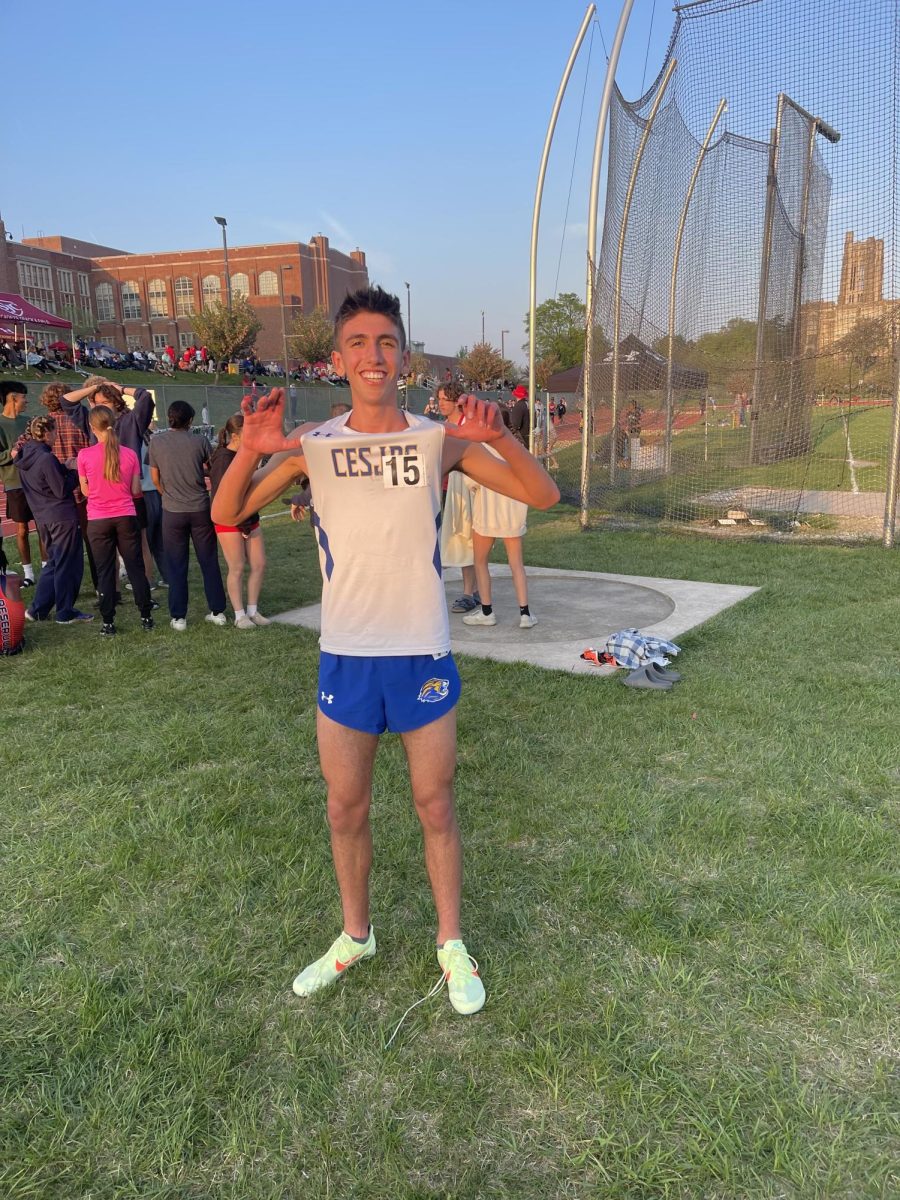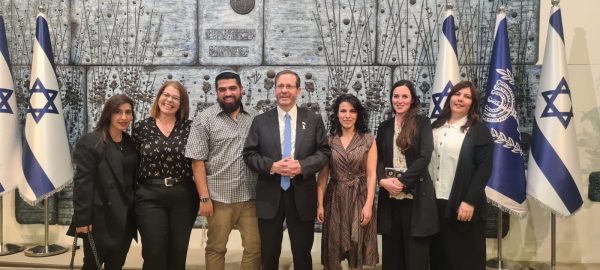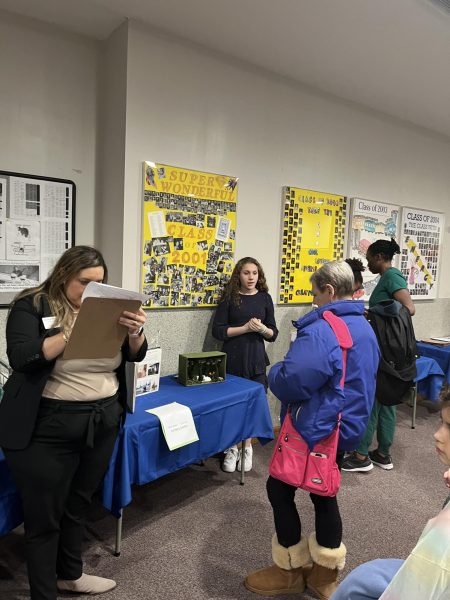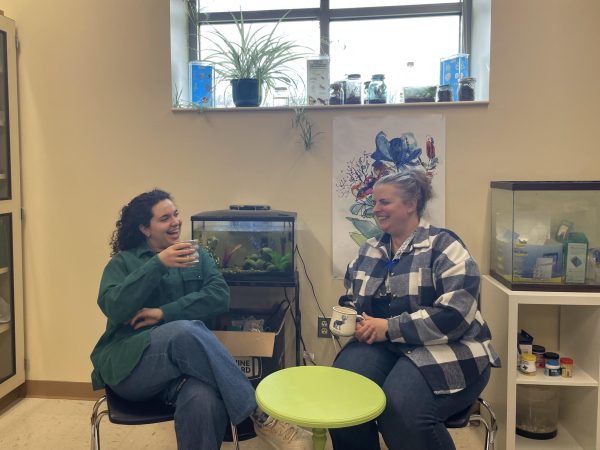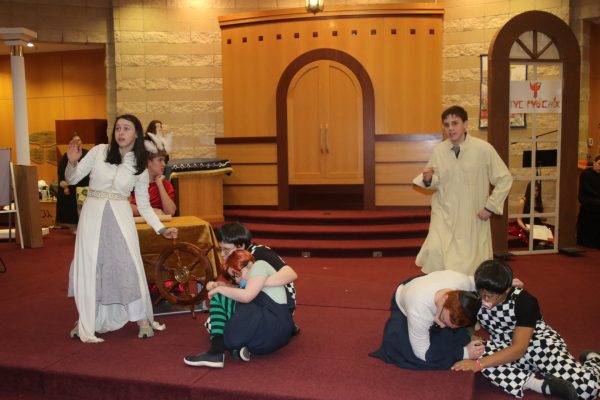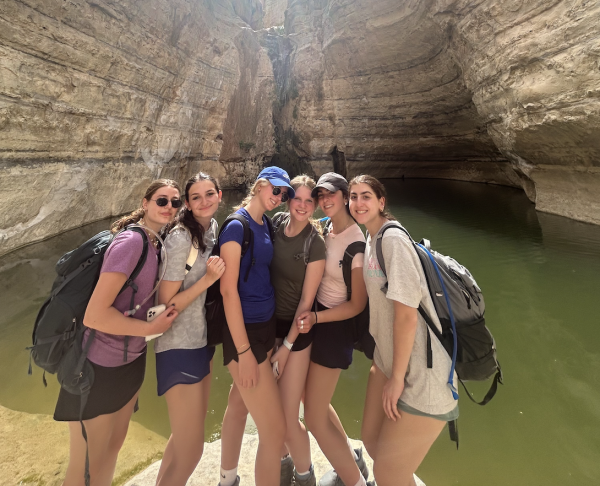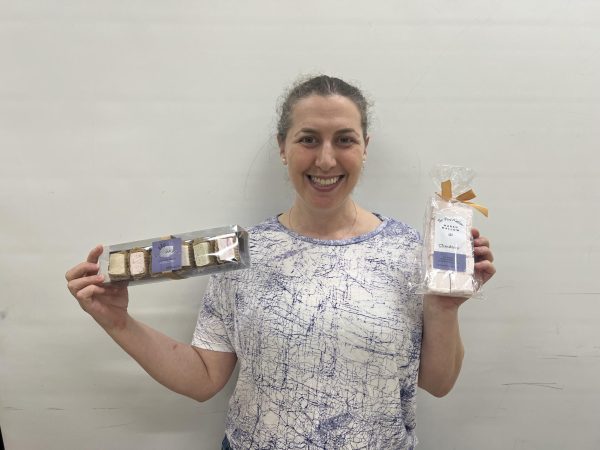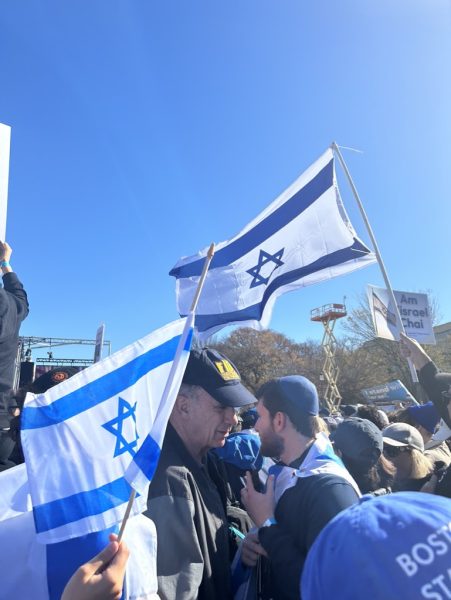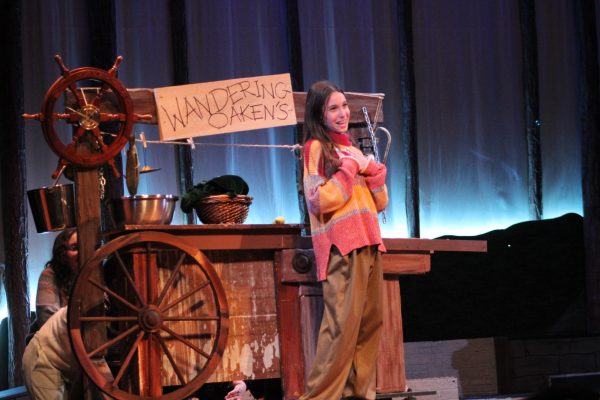Q&A With a Jewish History Speaker: Rebecca Shimoni Stoil
December 2, 2015
On October 28, CESJDS alumna Rebecca Shimoni Stoil, the Washington correspondent for the Times of Israel, returned to the school to speak with an eleventh grade class on the history of modern Israel. Below is an interview with Stoil, outlining her job, her goals, and her experience in the Israeli Defense Forces.
LT: Can you explain your current job? What is it that you do every day in your own words?
RS: I’m the Washington correspondent for the Times of Israel, which is very exciting, because it kind of picks into the framework of new media. We work a lot like a newspaper or a newsmagazine except for the fact that we don’t have a print edition, which for me is fairly novel, since I used to work for the Jerusalem Post, which was very much print-edition focused when I started working there. As the Washington correspondent, most of my work centers on political relationships here in Washington, frequently between the United States and Israel. I also work a lot with the internal working of the US Jewish organizations, which is a science in and of itself, and one that I really had to learn a lot about in the past two years that I’ve been doing this job.
LT: How did you become a journalist?
RS:I have always loved writing and when I was at JDS, I worked a little bit on the Lion’s Tale and a lot on the literary magazine and the yearbook. I did a lot of creative writing as a high school student. But I really only considered becoming a journalist, actually, by accident. After I finished serving in the IDF, I couldn’t imagine going back to grad school immediately. I didn’t really think that I was ready to just go back and apply myself academically. I had to find a job, since I was living on my own in Israel, and after a couple of months, I saw an advertisement for an internet editor at the Jerusalem Post. And so I applied for that job and took writing tests and was hired there. After about a year working as a breaking news editor, I was offered my first journalistic job, which was being internal security reporter for the Jerusalem Post. So, I sort of fell into news journalism by mistake.
LT: What inspired you to work towards a PhD?
RS: I’ve always wanted to get a PhD and become a historian who is actively involved in conversations about politics both historically and currently. And so the PhD was kind of the more natural outcome for me. The journalism was the unexpected career choice.
LT:You mentioned the IDF earlier on. What compelled you to join the Israeli Army?
RS: When I was at JDS for 11th grade Jewish History, I had a phenomenal teacher named Mr. Ben Jacobs. We read all of the classical texts about zionist thoughts, and I emerged completely convinced in their reptitude, and so, I decided, without actually ever having been to Israel, that I should make aliyah and move to Israel. Having made that decision, after being in Israel, I realized that I should serve in the IDF for 2 reasons. The first reason, and actually the fundamental reason for me initially, was that I realized that by making aliyah and becoming an Israeli, I was committing my children to mandatory IDF service, and I wouldn’t want to commit my future children to something I wasn’t willing to do myself. So I did it so that I’d have something good to tell them when they were 18. That was more of a justification, but the second reason was because the more I learned about Israeli society, the more it became really evident to me that in order to guarantee yourself a place at the table in serious conversations about the future of Israel, it really helps to be able to come from a place where you can speak of having experience with the security first-hand. And so it occurred to me that this basic bar for getting a proverbial seat at the table concerning Israeli political discourse was having served in the IDF and and preferably having served in a combat capacity or in a capacity where you really felt that your service gave you some insight into the Israeli security reality.
LT: What was one of your most meaningful, shaping experiences as part of the Israeli Defense Forces?
RS: I’ll give you two of them that were meaningful and shaping in different ways. The first one, I suppose, was when I was a very brand new combat medic. The first really serious emergency that we responded to was when my unit was serving in the West Bank and the first really serious incident that we responded to was reports of a Palestinian child being hit by a car driven by a Jewish person in the middle of a Palestinian village. We showed up to that emergency and we found a lot of people in the street very unhappy. The child was lying in the street and his mother was behind him and his father was berating his mother for letting the child run into the street, and it was just a very, very, very tense situation. Since we were medics, we were all really focused on the medical reality of things, and so we literally jumped out of our ambulances without even putting on our own protective gear. I was taking care of the child, and in the end, we also ensured that the child was transported by ambulance exchange to the best pediatric facility we could find out, because we were certain that he had a major head injury. And my role in it was actually not medical at all. My role in it was to get down on the ground next to the child and start talking to him using the terrible, classical Arabic that I had learned in college, and talking to him and talking to his mother, and trying to communicate with both of them. I think it was an intensely humanizing experience for everybody involved. And I would like to think that it helped diffuse the tension that both the other soldiers in my unit were feeling and that the people in the crowd were feeling, in such a way that it let us do what everybody ultimately wanted, which was the goal to get the child taken care of and taken to the appropriate medical facility to get the medical attention he needed. Even at the time, as we were on the way back from that incident, I was aware of the fact that this was a really formative experience for me.
The second one, which is much shorter, takes place about a year and a half later. I was the operational commander of my medical forces during an operation into one of the major cities in the Gaza Strip, and everything went wrong and we got stuck, surrounded by tall buildings and many, many risk factors in the middle of the night. We were basically stuck there, waiting for a repair tank to come by. We were very heavily armed. We were all in armored personnel carriers, and it occurred to me that what we needed to do was secure the perimeter where all of our vehicles were. For some reason, it didn’t occur to anyone except for me, and we were already kind of outside of our vehicles, and I said: “Okay guys, we’re going to need to take positions looking out towards these buildings to make sure that nobody tries to shoot at us from the buildings.” It seemed like a logical idea at the time. And as I’m going around, some of my soldiers were there, and some infantrymen from Golani were there, and I was checking and making sure that everybody was in their place, and one of the Golani guys looked at me and said to me: “Hey, my brother, do you have a light for me to light a cigarette?” And I answered him: “No, no I don’t.” And he nearly jumped backwards when he heard a woman’s voice, and said: “What are you doing here? How did you get here?” Because he was so completely unprepared to see a woman in full combat gear in the middle of the Gaza Strip. So that was obviously a very impressionable moment for me, because my answer was: “I got here the same way you did.” It was just a really funny moment and it was incredibly memorable, because the whole situation was terrifying, to be perfectly honest, and it was just complete sexism in a completely innocent manner. It reminded me of why I wanted to be in the army in the first place, in order to get a seat at that table afterwards, and that was a great example of how as a woman, you have to go a little bit above and beyond to defy expectations or anticipations.
LT: Is there anything else that you’d like to say to the CESJDS community?
RS: One of the things that I think is really interesting and that I’ve really treasured throughout this whole experience, is that first of all, I’m constantly reminded that my high school experience impacted and continues to impact so many aspects of my life, whether it’s less than continuous personal decisionmaking or whether it’s the actual skillset that I gained to be transferable at any given time. And in addition to that, when I look back at my own graduating class, one of the things that I never cease to be both amazed and charmed by is how differently so many of us have turned out, how many different paths we’ve taken, and yet, the ability that we have ultimately communicated. I’ve probably talked to at least five JDS alumni through social media, from my class alone, every single week, despite living in different continents, despite having completely different experiences, despite not necessarily even agreeing with the choices that we’ve made in our lives and not necessarily understanding them. And I think it’s really a great basis to have this framework for conversation that gives you this diversity of opinion amongst people you’ve been friends with for the past 20 years. And so that’s something that I really cherish, and I don’t know if in a different school with a different community sensibility that would be as possible.


